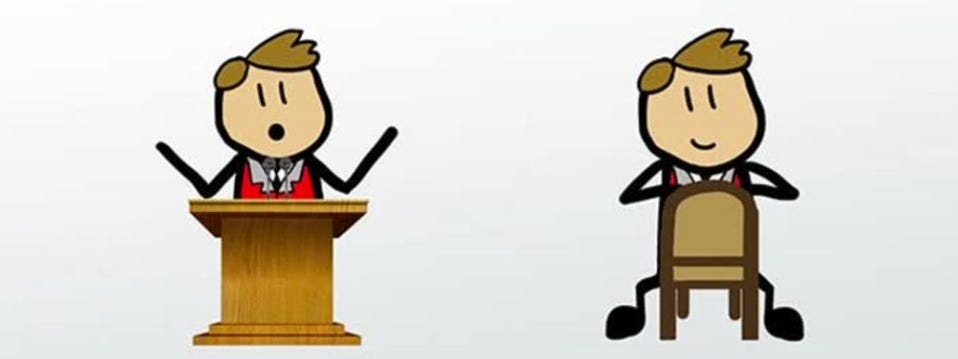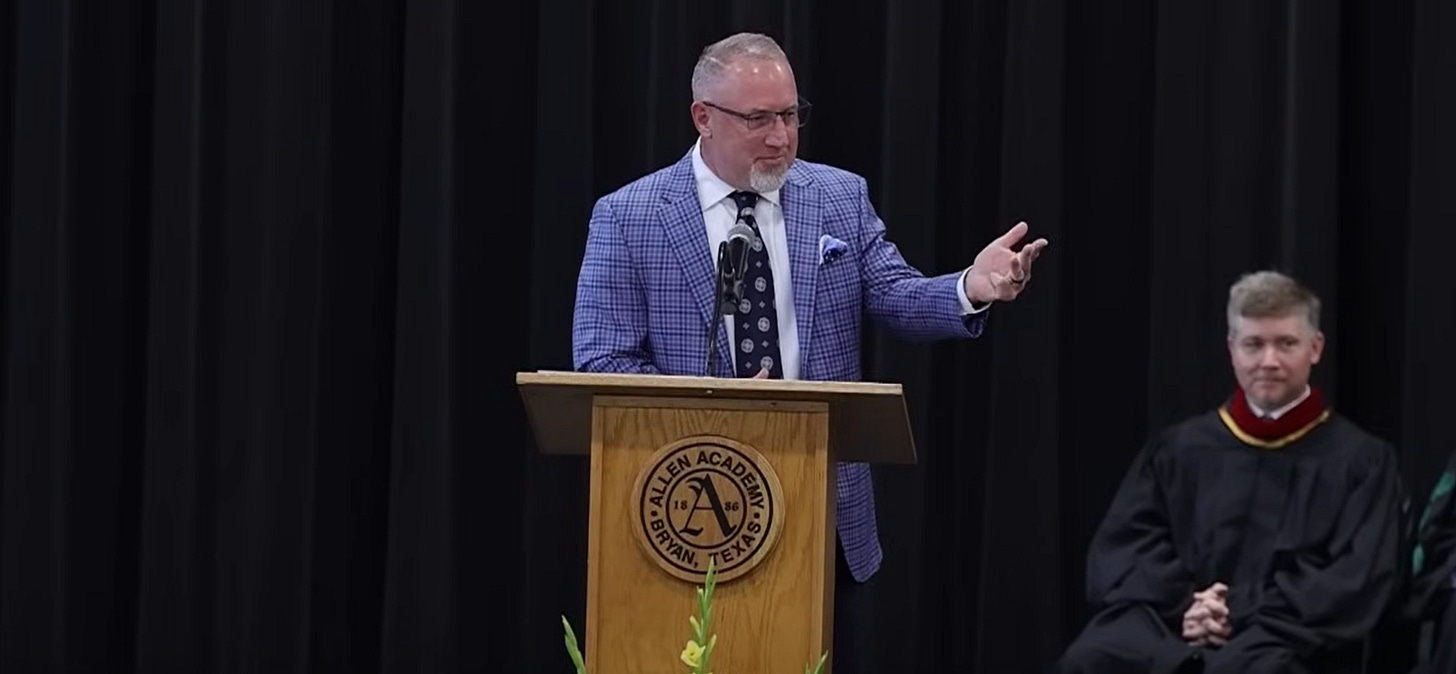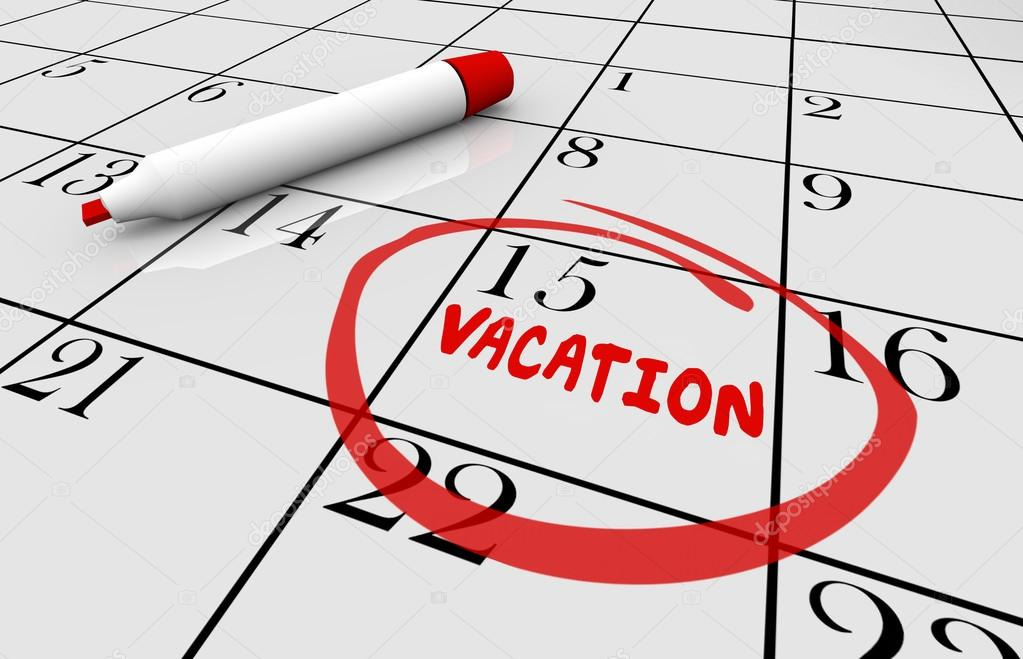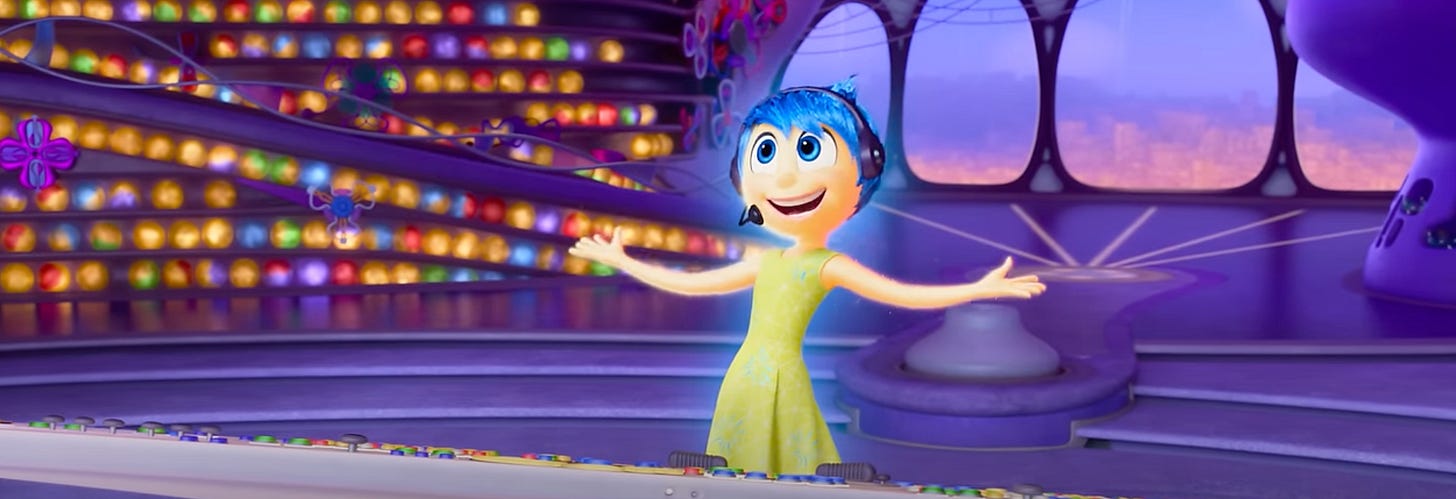#54 | 7.5.24 - Communication Lessons from the Presidential Debate / Coach Buzz Williams: I Wish I Had Known / Vacation Time Hack / Inside Out 2
Hello, friends, and welcome to Further Faster Fridays! If this is your first issue, welcome! We ship the best content in personal development and leadership each Friday to help you go further, faster. Glad to have you as part of the community!
Now, on to the content!
Communication Lessons from the Presidential Debate
First off, this isn’t a political post ✅
Also, I’m not speaking to the legitimacy of either of the candidates' statements but instead calling out what I noticed and what we can all learn from it.
I'm really passionate about this subject. Communication is one of my top five strengths, and I have given over 100 talks and keynotes. While I don't consider myself an expert, I am always working to improve. I previously wrote about the structure of a talk in issue #44. In line with that article, here are some practical considerations to keep in mind, whether you're a president, CEO, or an individual contributor.
Prepare, but know when to say when.
This was one of the biggest takeaways I had when watching the debate. As much as I value time to prepare, I know there is such a thing as preparing too much. During a recent talk I gave, I prepared for months. I had it planned out and mostly memorized. I thought for sure this would be one of the best. I got some feedback, and it was a solid “meh.” I learned that I prepared too much. I saw the same thing in the debate. The President looked tired, and his voice sounded hoarse. I read online later that he spent the week doing 15 mock debates. 15 debates in 7 days! Yes, prepare. But at some point, you need to be secure in the knowledge you’ve prepared as much as possible, and it might be time to get a good night’s sleep.
✅ Pro Tip: As you prepare for your next talk, create a timeline that allows your brain to rest with the information. I recommend at least 48 hours before returning to it.
Tell stories.
As I watched the debate, one of President Biden’s strong answers came when he elaborated upon his son's military experience. I felt like he had a burst of energy when he told that story.
Someone once told me that when preparing a talk, we should “give them principles for their heads and a picture for their hearts.” Principles (and facts) are good for providing data and context, but people will always remember a story. This isn’t to say you have to choose one or the other. Some of the best talks I remember started with principles and ended with a story to tie it all together.
✅ Pro Tip: Use your facts, but look for opportunities to tell a story. If you don’t have a personal story, google one (example: “story that illustrates inclusion”). Also, if you are using slides, insert a picture to go along with the story.
Communicate your preferred logistics.
Would you like to advance your slides or have the production team do that? What time of day do you prefer to speak? Do you want to use a podium? What kind of microphone do you prefer? Communicating these kinds of details to the production team or support staff will ensure a positive experience for everyone.
✅ Pro Tip: Never assume the local team knows your preferences. Be sure to communicate them ahead of time. Also, put all your content in a cloud storage solution (Dropbox, Google Drive, etc.) and carry a flash drive. That way, you’re never without the content you’ve worked so hard to create!
A bad talk is not the end of the world.
I’ve had the unfortunate experience of having a talk not land. Things go wrong. As a friend of mine once told me, “Sometimes your audience gets a steak, and sometimes they get a bologna sandwich.” 🤣
You know what? It’s actually ok. It’s likely you will have another chance. The question is - what did you learn from your experience, and what do you plan to do about it? It’s only a failure if the answers to those questions are “nothing” and “nothing.”
🟢 Pro Tip: After your talk, create a note with your own feedback and what you want to do better. Also, enlist the help of a few (trusted) people and get their feedback.
Fill The Space
This is something one of my mentors said. He reminds me you’re being asked/hired to give this talk because they want to hear from you. With that in mind, do all you can beforehand to prepare, rest, and then go in there with confidence and Fill. The. Space!
Coach Buzz Williams: I Wish I Had Known
Coach Buzz Williams (who I previously wrote about here and here) recently delivered a powerful high school commencement address with three critical lessons.
No Guard Rails
Climb Your Own Mountain
What’s The Aim?
Definitely worth a watch.
Vacation Time Hack
A friend of mine recently pointed out that if you want the most bang for your buck with your vacation days, request these days off:
July 1-3 & 5
3 vacation days taken, 9 days off
Sept 3-6
3 vacation days taken, 9 days off
Nov 12-15
3 vacation days taken, 9 days off
Nov 25-27 & 29
3 vacation days taken, 9 days off
Dec 23, 24, 27, 30, 31
5 vacation days taken, 12 days off
Inside Out 2
What an absolutely smart, fantastic movie. We really enjoyed the first one and I think the second one is equally as good, or better. I learned a team of psychologists helped bring this to life, and it’s no surprise. A moment I’ve thought about long after the credits rolled (no spoiler) was when Sadness asked Joy if she could go with her. In response, Joy takes Sadness’ hand into hers and says, “Of course! Remember Sadness, wherever I go, you go too.”
Think about that! 🤔
Words to wrap up
Your competition isn’t other people.
Your competition is your negative thoughts.
Your competition is your comfort zone.
Compete against that - this is how we grow.







